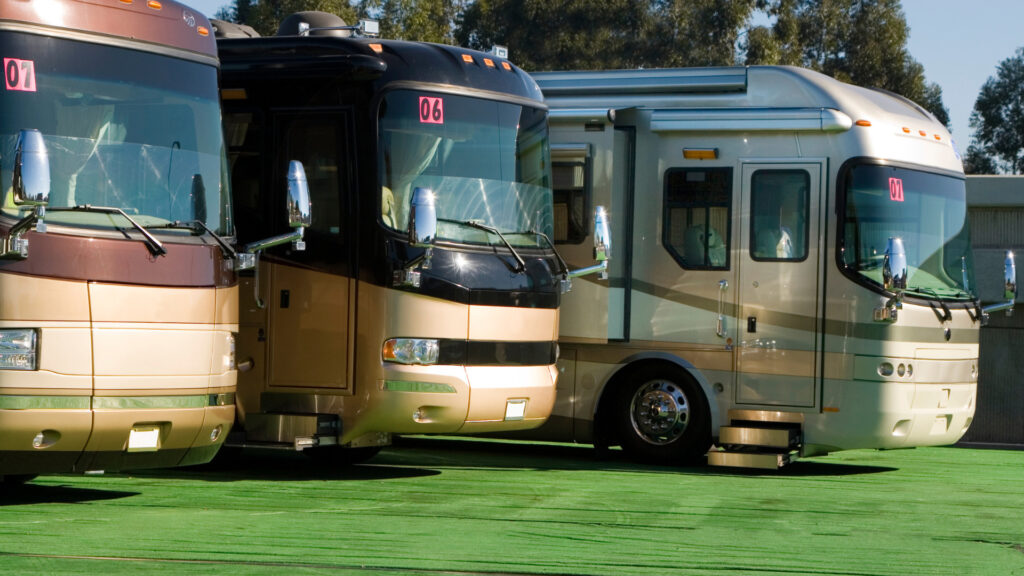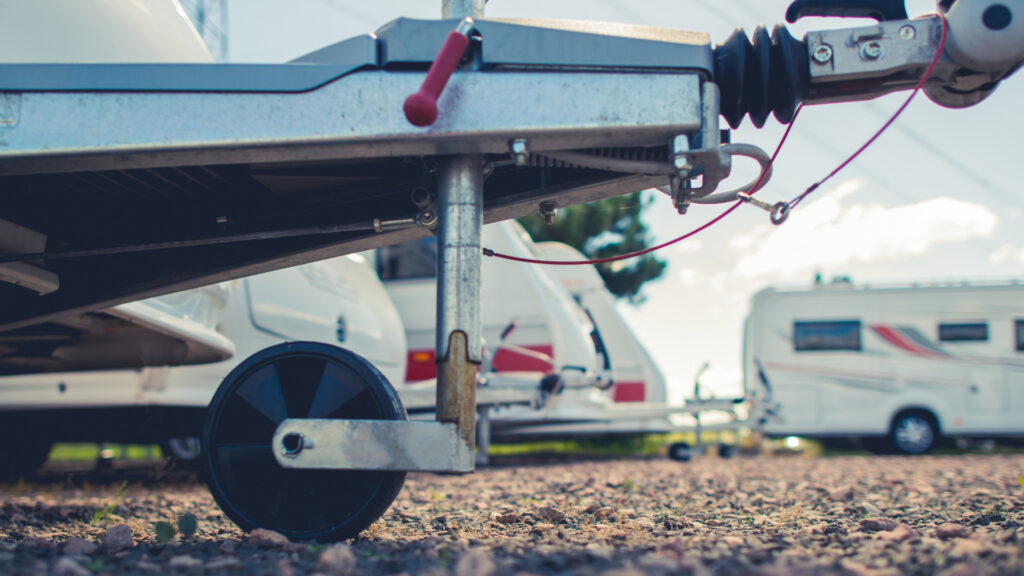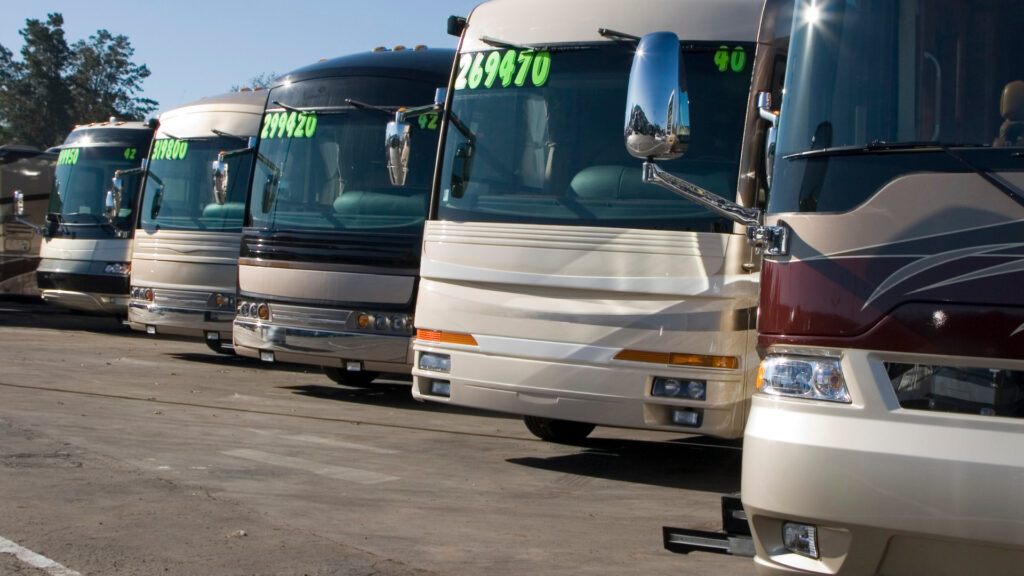Table of Contents Show
There seems to be an RV rolling down the highway everywhere you look. However, despite their increased price tags, many owners of new RVs have found their RVs somewhat disappointing.
Unfortunately, it’s not just one brand that we can point the finger at for falling short of customer expectations. For the most part, it’s a problem we’re seeing across the entire RV industry.
Today, we’re sharing five reasons why new RVs suck now more than they did in the past. Let’s see how many of them reflect your feelings about your new RV.
If you’re shopping for a new rig, it might be best to consider these as warnings. Let’s get started.
Why Do RVs Have So Many Problems?
There are several reasons why RVs have many problems, but they primarily boil down to a lack of quality in the finished product.
Whether it’s because of a manufacturer trying to use the cheapest parts or builders cutting corners to get it done quicker, the final product doesn’t measure up.
In addition, every time you hitch up and tow your RV, your rig experiences earthquake-like conditions. As you travel down the bumpy and pot-hole-ridden roads, things will shake, shift, and vibrate.
The more you use your rig, the more likely this will cause parts to loosen or components to fail.
Are RVs Built to Last?
Unfortunately, most RVs aren’t built to last. They’re recreational vehicles meant for having fun and creating memories.
However, most manufacturers know that their RVs likely won’t last more than 15 to 20 years.
This is why depreciation is serious regarding RVs and why most, regardless of their type, are worth only a fraction of their original value in a matter of years.
Most RV owners fail to do the regular maintenance necessary to protect their RV from potential damage. To give your RV the best chance of lasting, you’ll need to do thorough and regular inspections, repairs, and maintenance.
5 Reasons New RVs Suck
Despite whatever a slick salesperson at the RV dealership told you, no RV is perfect. Even if you’re buying a new RV, things don’t always go as planned.
Many even argue that new RVs suck more than buying a used RV. Let’s look at five reasons we think new RVs suck more than a vacuum cleaner!
1. They’re Built Faster
One of the things we learned while taking a tour of a large RV manufacturing plant was how insanely fast they could crank out an RV. These plants can make several dozen RVs in a single day.
They use a fast-paced assembly line to move rigs from nothing more than a frame to a fully finished RV in the blink of an eye.
While they’ve got this down to a science, it’s incredibly rushed. As a result, those doing the work look for any possible way to save time and energy during their step of the process.
While the worker may not think it’s a big deal, the more corners cut to speed up production, the more the finished product will fall short.

2. No New Innovation
While there has been some innovation in the RV industry over the last decade, it’s not nearly what you’d expect. The RV industry is typically a decade or more behind other sectors.
One piece of evidence to support our claim is how most RV manufacturers still install DVD players in their rigs. They’ve yet to switch to Blu-Ray, one of the most common video formats. Those wanting to watch a movie on a rainy day quickly discover they can’t use their Blu-Ray discs.
In general, RV manufacturers severely lack innovation. RVs have been selling like hotcakes over the last several years, which has provided manufacturers with little reason to think outside the box.
However, as the market has begun to cool over the last several months, many will have no choice but to differentiate themselves from the rest of the pack to stay in business.
3. Build Quality Is Lacking
RV manufacturers typically look for any opportunity to use cheaper and lighter materials. While this helps keep the overall weight and cost to build the RV as low as possible, it typically results in an inferior product.
Instead of using solid wood for cabinets, RV manufacturers use cheaper alternatives with a faux top layer glued to it.
These shortcuts may result in a quality-looking RV when you buy the rig, but after a year or two of camping, it’ll show its true colors. These materials don’t hold up when tested during normal use while camping.
In addition, many find that various components, including some structural ones, begin to fall apart over time.
Manufacturers could address many of these issues if they simply took more pride in the build quality instead of how many they can make as quickly as possible.

4. Overpriced
If you’ve tried to buy an RV in recent years, you’ve likely experienced a bit of sticker shock on the price tags of most rigs.
While the sales department will blame inflation, supply shortages, and increased shipping costs, we’re not buying it. If that were the case, fewer manufacturers, like Thor Industries, wouldn’t report record-breaking corporate profits.
Unfortunately, buying a new RV today will cost you substantially more than it would have a few years ago. Corporate greed and the increased demand for RVs have driven the cost through the roof.
However, we do have some hope, as the insane demand has started to slow in recent months. Rising gas prices make it less appealing to tow or drive an RV.
Pro Tip: Looking to save money while on the road? Here’s Where To the Lowest Gas Prices in USA
5. Getting Warranty Work Done is Painful
Things will go wrong with your RV, and one of the suckiest things about new RVs is trying to get warranty work done on them.
The entire process of filing a claim with the warranty provider and getting the job done can feel completely exhausting and painful.
While RV manufacturers can quickly build RVs, the support system to service those rigs hasn’t grown nearly as quickly.
Most warranties require approved service technicians to complete all work. As a result, you could wait weeks or months if you experience an issue with your RV.
Even if you’re handy, don’t even think about repairing it yourself. If you do, you could entirely void the warranty on your rig. Many RVers discover the warranty the RV dealership sold them is worth less than the paper it’s written on.

Was RV Build Quality Better Before RVing Gained in Popularity?
You’ll hear people say, “They just don’t build them like they used to” when it comes to just about everything, whether it’s a refrigerator, car, or RV.
Build quality has been a complaint over the last couple of decades for recreational vehicles. However, we have noticed an increase in issues over the last several years since RVing has become very trendy.
Though RV manufacturers can’t take all the blame when it comes to many of the RV issues we see.
Misusing an RV, failing to keep up with the maintenance, and ignoring obvious signs of repairs often lead to significant problems later on, all of which fall under the responsibility of the RV owner.
Now that demand for RVs is cooling off a bit, manufacturers will likely have no choice but to slow down and focus on quality more than quantity. This will help win over customers and ensure they continue to remain in business down the road.
Keep in Mind: Should you buy a used or a new RV? These 8 Facts will help to Settle the Debate!
Think Twice About Buying a New RV
If you’re in the market for a new RV, you may want to think twice about it. You’ll end up with an increased chance of poor quality that you then pay a premium price for.
You could find yourself tackling one repair after another after taking your new rig out for a camping trip or two.
You may even find that your new RV spends more time in a repair shop than at a campsite.







The issue of poor quality has been evident for the past decade but made more obvious in recent years by the newcomers to the RV world and further the Covid pandemic. Our 2008 manufactured Class A diesel costing over $350K, was worse than junk. It literally fell apart over a five year period and for which we took a financial beating when we sold it. I agree, don’t buy new!
We did however, buy a 2002 MCI E-4500, 45′ that was a motorhome conversion with a Detroit S-60 engine. It has been fantastic and there is no comparison re structure, build quality, ride, handling and safety plus durability. Under no conditions whatsoever would I buy a manufactured unit again.